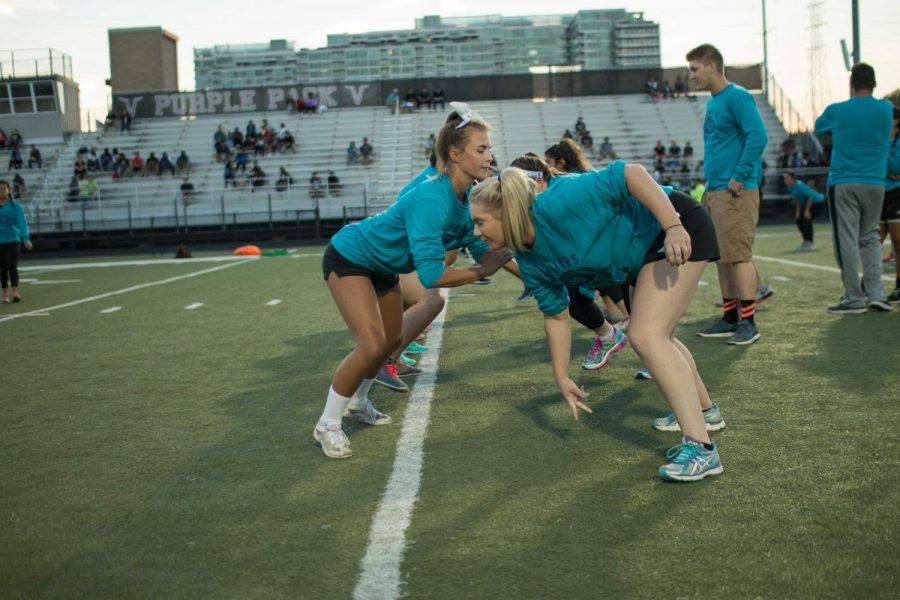When push come to shove Powderpuff football is rooted in sexism
October 10, 2017
Powderpuff, a football game in which senior and junior girls compete against one another, has long been celebrated as an annual novelty sports event at Niles North. The issue with the game lies in the fact that it is a novelty, that the notion that girls might participate in contact sports with other girls is somehow absurd and “cute”.
This concept is upheld by the lack of female-identifying players appearing on the football roster. Although football is technically a co-ed sport, girls trying out for the team is never encouraged and when it occurs it is an anomaly that is regarded as a joke. This idea is pervasive throughout society and manifests itself in incredibly wide prize and pay gaps for professional sports and in inequitable opportunities for collegiate sports. According to the Women’s Sports Foundation, female students comprised 57% of the population, they are only offered 43% of the available athletic opportunities at NCAA (National Collegiate Athletic Association) schools. Female student-athletes also only receive 45% of scholarship opportunities, 40% of college sport operating funds, and 37% of college recruitment funds. In the professional sector, WNBA players have a salary cap of $878,000 per team, while NBA players have a salary cap of $70 million. The US Women’s soccer team won $2 million in prize money for taking home the first place trophy at the World Cup in 2015, while the men’s team earned a whopping $9 million for finishing in eleventh place.
The sports world is obviously rife with sexism, and much of the stereotypes that enforce these roles can be found in high schools across the country- exemplified in athletics that poke fun at girls for their “unathleticism”. “Last year, I felt talked down to by some of the student coaches. I didn’t feel like their equals,” says senior Neda Mateen, who chose not to return to the game her senior year. The sexism of Powderpuff can be conflicting to those who recognize it but still want to participate. Junior Kathryn Gomez felt pulled between her feminist ideals and her urge to be a part of a game she sees as fun. “Powderpuff is really fun and I’m doing it with a lot of girlfriends and some of my guy friends are the coaches. It’s kind of cool because girls are placed into a predominately male sport, breaking the social norm. But the idea of powderpuff is super sexist and calling it ‘powderpuff’ can defeat that purpose of gender equality.”
So, while cheering in the stands tonight and encouraging your grade to take home the trophy, consider the ways in which Powderpuff perpetuates sexist norms that degrade women to being constantly second-class to their male athletic counterparts (even, like in our World Cup example, when the women are clearly better). Although it appears to be a fun event on the surface, the game discourages women from having a serious interest in contact sports, especially football, and belittles their athletic involvement to being a novelty. Once we all reach these realizations, we might be able to accept that a game like Powderpuff needs a serious reboot.


